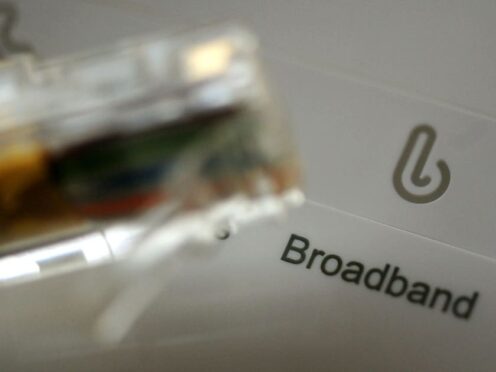
A broadband provider has criticised some of its rivals over their ongoing use of inflation-linked mid-contract price rises, and urged Ofcom to push ahead with plans to ban the practice.
Zen Internet boss Richard Tang said it was “a shame” that the regulator has been required to step in, rather than major internet providers realising it was “the right thing to do” to ditch such contracts.
A new round of inflation-linked rises is expected in April – expected to be around 8.8% for some customers of the biggest broadband providers – and before any proposed Ofcom ban will be in place.
In December, Ofcom proposed a ban on the practice, but a final decision is still to be announced.
Mr Tang said: “Typically broadband customers will pay for 13 months in a year rather than 12, thanks to inflation linked mid-contract price rises.
Zen has never done this in its 28 years of trading.
“The proposed Ofcom ban on this practice will go a long way to fix the problem, giving consumers more certainty about what they are going to pay.
“It’s a shame the regulator has had to step in and that the major providers didn’t just realise it’s simply the right thing to do.”
The broadband provider has published new research which shows that almost half of people find a mid-contract price rise above inflation unfair, and 75% said they supported Ofcom’s proposed ban of inflation-linked price rises.
The survey of 2,001 UK adults was commissioned by Zen and carried out by Censuswide in March, and also find that despite dissatisfaction over consumers over the issue, a fear of switching providers was holding many back.
Those asked identified the hassle (27%) and cost of switching (19%) as reasons for stopping them changing providers, with 18% saying they were worried about a disruption to their internet connection because of it.
Earlier this week, Zen Internet was among the smaller broadband providers to finish above the big four broadband firms – BT, Virgin Media, Sky and TalkTalk – in consumer group Which?’s latest broadband rankings.
Natalie Hitchins, Which? head of home products and services, said consumers “could be better off choosing a smaller company which prioritises customer service over a giant that also stings them with unfair mid-contract price rises”.
Mr Tang said: “Research shows price, reliability, and speed are top factors when choosing a broadband provider and Zen has again scored highly across these categories in the annual Which? survey of broadband providers, securing our place as the only Which? recommended provider for broadband.
“We have a huge ethical focus putting people and the planet ahead of financial return for shareholders.
“Switching broadband is easier than people may think, and consumers have got the power to make the choice.”

Enjoy the convenience of having The Sunday Post delivered as a digital ePaper straight to your smartphone, tablet or computer.
Subscribe for only £5.49 a month and enjoy all the benefits of the printed paper as a digital replica.
Subscribe